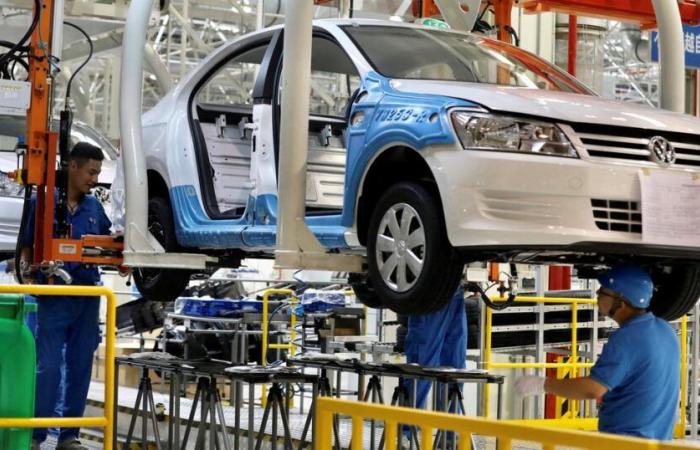
The automobile manufacturer Volkswagen announced on Wednesday that it would cease its activities in the Chinese region of Xinjiang, which had attracted criticism due to accusations of human rights violations against Beijing. The group justified its decision by “economic reasons”.
Europe’s leading automobile group is at the center of attention because of its factory in Urumqi, the capital of Xinjiang, opened in 2013 and in which it holds a stake through its local partner SAIC.
This controversial site, as well as a test track in Turpan, are now to be sold to the Chinese company Shanghai Motor Vehicle Inspection Center (SMVIC).
Charges of forced labor
German bank Deka has already removed Volkswagen shares from its portfolio of “sustainable” securities in March 2023, after the American rating agency MSCI raised the red flag over allegations of forced labor at the factory. Urumqi.
An external audit commissioned by Volkswagen last year found no evidence of forced labor among the factory’s 197 employees, but several media outlets, including the Financial Times, in September denounced flaws in the methodology adopted by the report .
Beijing is accused of incarcerating more than a million Uyghurs and other Muslim minorities in a network of detention centers across Xinjiang.
Activists and Uyghurs living abroad said a range of abuses took place in the centers, including torture, forced labor, forced sterilization and political indoctrination.
>> Read also: UN report on Xinjiang cites crimes against humanity
Sales in decline and factory shut down
The group is purely putting forward a “strategic realignment” in the context of the transition to electric cars. In China, its main market where it delivers a third of its cars, sales fell 15% in the third quarter.
The group’s flagship brand, VW, lost ground and fell behind local competitors, losing its title of best-selling automobile brand to BYD.
The Xinjiang plant, opened in 2013 and previously assembling Volkswagen’s Santana model, had lost its importance in recent years after job cuts by the automaker. Around 200 employees were still responsible for carrying out the final quality checks and handing over the vehicles to dealers in the region.
The site, which had the capacity to manufacture 50,000 units per year, has not produced vehicles since 2019.
Tax war denounced
Volkswagen also denounced the increase in customs duties on cars imported from China to the European Union, decided by Brussels this summer, fearing repercussions from Beijing which could impact its sales in China.
>> Read also: Chinese electric cars will be taxed in the European Union
The announcement on Xinjiang comes as the group is going through an unprecedented global crisis and is currently negotiating a savings plan which could lead to thousands of layoffs or even factory closures in Germany.
>> Read also: In the wake of Volkswagen, the entire European automobile industry is under pressure et Volkswagen prepares massive job cuts in Germany, according to employee representatives
cab with agencies





